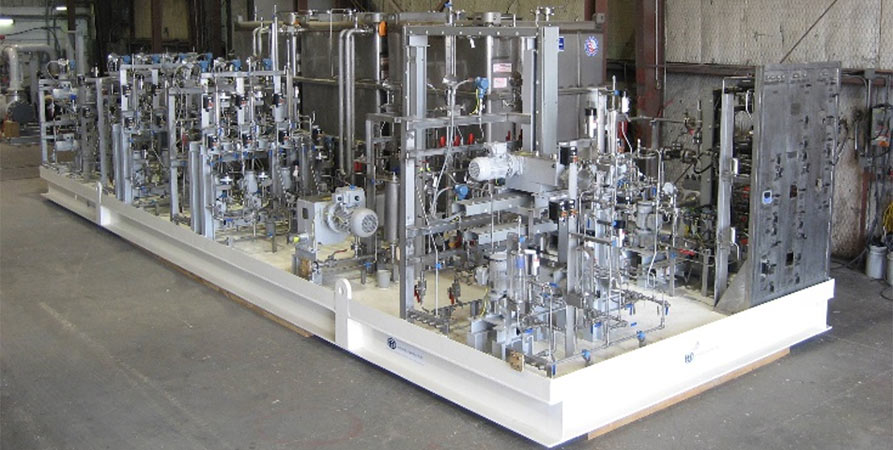Geova Storage BV supports our clients with high-quality storage tank inspection, engineering, maintenance, access, and data management expertise, as preventing corrosion, cracking, and leaking in refinery storage tanks is crucial for plant productivity, safety, and compliance.
Storage Tank Non-Destructive Testing (NDT) Inspection and injection Services
We use a wide range of advanced NDT techniques for aboveground and underground tanks and all of their individual components, including floors, welds, annular rings, roofs, shells, and more.
Geova Storage BV inspects tanks throughout all phases of their operational lives, encompassing their construction, inspection, and maintenance. Our inspections help tank operators identify signs of damage, including corrosion, leakage, cracking, and wall thinning.
In-Service, Intrinsically Safe (IS) Storage Tank Inspections
Our customized, non-intrusive tank inspection services — which include the use of an intrinsically safe (IS) probe —maximize safety by allowing owners to determine the relative condition of their storage tanks without sending technicians into the asset.
Geova Storage BV’ in-service, IS scanning service is a reliable, environmentally-conscious, and safe tank inspection method, primarily used for ultrasonic wall thickness measurements. These inspections allow tank owners to postpone a full out-of-service inspection until a more appropriate time, reducing costs, downtime, and lost profits.
Additional benefits of this tank scanning service include:
- Tanks stay in service
- Personnel and environmental exposure to hazardous product is minimized
- Accurate corrosion rate assessment
- Hazardous waste disposal costs are minimized or eliminated
- Environmental and operational liabilities are significantly reduced
Main Components of a Chemical Injection System in Oil and Gas
A fully functional chemical injection system has various components that function together to optimize productivity in the oil and gas industry. Although variations may occur depending on end-user preference, the components listed below are typically present in one form or the other.
Chemical Injection Storage Tanks
Storage tanks are indispensable to the process of chemical injection in oil and gas. These vessels house the vital chemical solutions required to improve oil recovery, decrease foaming, enhance separation, and inhibit channel corrosion. These tanks can be custom-built to suit end-user specifications and space considerations. Tank structures include a range of shapes from rectangular, square, or cylindrical variants.
Metering Pumps
Equally important to chemical injection systems are the pumps used to convey the chemicals into the targeted oil formations. Injection pumps sustain a steady flow of chemical solution throughout a wide range of pressures for optimized performance. Chemical injection pumps can be plunger, diaphragm, and double diaphragm configurations powered by electric motors, pneumatic systems or solar energy.
Instrumentation
All chemical injection systems require instrumentation to monitor critical system parameters. Typical instrumentation can measure suction tank level, metering pump flowrate, metering pump discharge pressure, pulsations, and temperature. Multiple injection points can be managed by (1) metering pump and multiple injection rate control devices (IRCD) which separately meter the injection chemicals to individual injection points. Here is a typical IRCD chemical injection package.

Skid-mounted instruments monitor and record logs of the operating conditions within an injection system. These units also help to predict and prevent adverse situations by performing automatic shutdowns. Apart from automated fail-safes, chemical injection systems may also possess inbuilt alarms and manual shutdown valves.
Suction/Discharge Piping & Valves
In order to carry the specialty chemical from the storage tank to the metering pump, suction piping and manual valves are installed on the chemical injection package. Additionally, discharge piping and manual valves carry the high-pressure chemical from the metering pump to the skid edge, where the chemicals are routed to their final injection location. Hardware components such as ball valves, gate valves, check valves, calibration columns, etc. are all a part of the overall chemical injection package
Skid Compatibility
Most chemical injection systems are skid-mounted. Compatibility with a steel skid mount allows safe transport and operation while providing structural protection to the system during routine operations. Process skid manufacturers like IFS have several solutions for your chemical dosing and injection needs.
IFS Provides Modular Chemical Injection Packages
At Integrated Flow Solutions, we are dedicated to providing you with the most efficient modular chemical injection packages. For project operators looking to gain a competitive edge in the oil and gas industry, IFS is the right fit.

